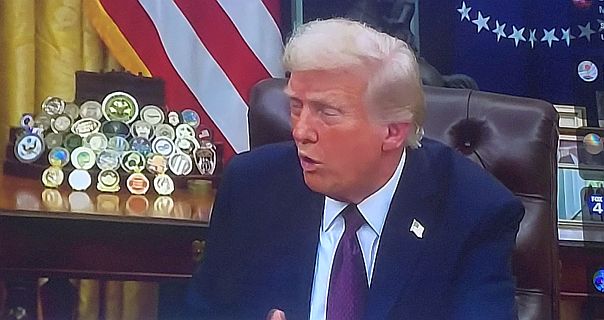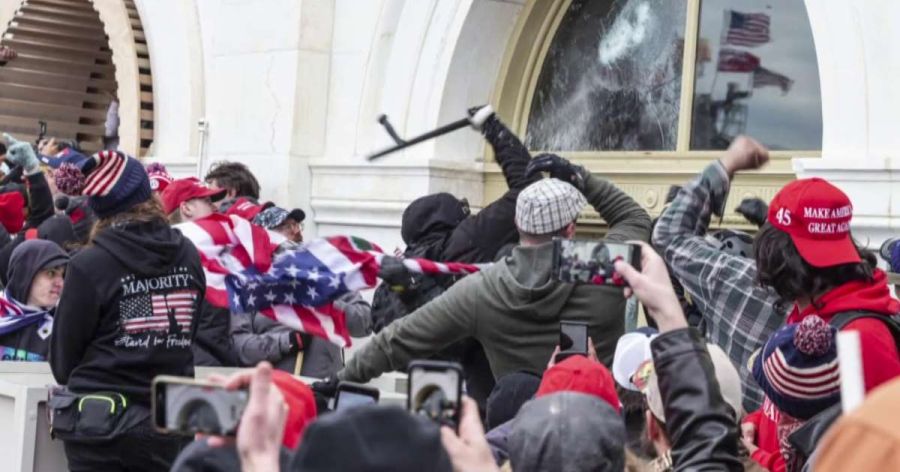
Trump pardons U.S. Capitol rioters, including those convicted of violent crimes and felonies

Well, he said he was going to do it – and he did. On the day of his inauguration, January 20, 2025, the 47th president of the United States, Donald Trump, issued a sweeping pardon for approximately 1,500 individuals charged in connection with the January 6, 2021, Capitol riots and insurrection. Those pardons include almost all of the rioters, including those that were convicted of violent acts, according to Twin Cities and The Associated Press.
This move, which Trump says will satisfy his base, is sparking controversy and debate.
The January 6, 2021,attack on the U.S. Capitol has evolved onto a significant event in our United States’ history. In case you missed it, on that day, a large group of Trump supporters stormed the U.S. Capitol in an attempt to overturn the 2020 presidential election. The attack resulted in the deaths of five people, injuries to about 120 police officers, and extensive damage to the Capitol building.
The Justice Department launched a massive investigation, leading to the arrest and prosecution of nearly 1,600 individuals, with those prosecutions having been widely reported by USA Today and this publication, Ace News Today. (Note: Search “Capitol Riots” in the Ace News Today Search box.)
Trump hinted at these pardons when he was campaigning for the presidency, characterizing those that been prosecuted as “patriots” and “political prisoners” who had been targeted by the Justice Department purely for political reasons. Threatening to pardon the insurrectionists resonated strongly within much of Trump’s base, as many of his followers didn’t see the defendants as violent rioters – but those simply wishing to follow Trump’s inciteful words on that fateful date urging his supporters to fight for their country as the election had been stolen (which it wasn’t.)
Trump’s inaugural pardons included those who had been convicted of assaulting police officers, obstructing law enforcement, and other serious offenses. The 14 prison sentences he commuted included key members of the Oath Keepers and Proud Boys militia groups.
The pardons have garnered strong reactions from both supporters and critics. Trump’s supporters argue that the pardons are a necessary step to correct what they see as a politically motivated prosecution. They believe that the January 6 defendants were exercising their First Amendment rights and that the Justice Department’s actions were an overreach.
Critics, however, argue that the pardons undermine the rule of law and send a dangerous message that political violence is acceptable. They point out that many of the individuals pardoned were convicted of serious crimes, including assaulting police officers and obstructing the certification of the 2020 election results.
The Associated Press quoted former House Speaker Nancy Pelosi as saying that the pardons are “an outrageous insult to our justice system and the heroes who suffered physical scars and emotional trauma as they protected the Capitol, the Congress, and the Constitution.”
Several of the January 6 defendants were released from jail in Washington D.C. overnight, with the remining expected to be free within the next few hours and days, according to MSN.
Criminal charges associated with the rioters include that have now been nullified by Donald Trump include:
- assaulting, resisting, or impeding police officers or Capitol employees,
- causing serious bodily injury to an officer or using a deadly or dangerous weapon,
- assaulting a member of the media or destroying their equipment,
- destruction of government property,
- theft of government property,
- corruptly obstructing, influencing, or impeding an official proceeding or attempting to do so, and,
- conspiracy, including conspiracy to obstruct a congressional proceeding, conspiracy to obstruct law enforcement during a civil disorder, conspiracy to injure an officer, or some combination.
In the 48 months since January 6, 2021, more than 1,583 individuals have been charged in nearly all 50 states for crimes related to the breach of the U.S. Capitol, including more than 600 individuals charged with assaulting or impeding law enforcement, which is a felony.
For more on Trump’s executive order pardoning the January 6 defendants, see the video accompanying this article.
What is your feeling on Donald Trump’s pardoning the defendants in the
January 6, 2021, attack on the U.S. Capitol? Please “Leave Your Reply” in the Comments box below.
–
Posted by Richard Webster, Ace News Today
Follow Richard on Facebook, Twitter & Instagram






